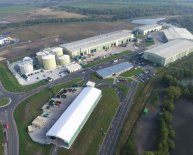
Oilfield Waste Disposal
The disposal of wastes associated with oil and gas production continues to draw the attention of regulators and concerned citizens. In a series of articles we will examine the waste issue from the characterization of these wastes (discussed below) and their ultimate disposal in underground injection wells.
A Brief History of Waste Management and RCRA
By the 1960s it was becoming clear that the country had a waste management problem. The only modern environmental law on the books at the time was the Clean Air Act. So the Solid Waste Disposal Act of 1965 was enacted as an amendment to the air law. This initial foray into comprehensive waste regulation proved inadequate in many respects. The treatment, storage and disposal of waste — even defining what a waste is — is complicated, especially when recycling is considered.
The modern regulation of solid and hazardous waste can be traced to 1976 with the enactment of the Resource Conservation and Recovery Act (RCRA). Generally, when looking at the world through the lens of RCRA, all material is either a product or a solid waste. A subcategory of solid waste is hazardous waste that is regulated under Subtitle C of RCRA.
A solid waste is “hazardous” if it has been specifically listed as hazardous by the EPA or if it has certain hazardous characteristics, e.g., flammability. Subtitle C of RCRA prescribes a “cradle-to-grave” management system for hazardous waste. Nonhazardous solid wastes are addressed in Subtitle D of RCRA. (Note: Under federal law, all hazardous wastes are solid wastes, but not all solid wastes are hazardous wastes.)
The key point to understand is that if a solid waste is a hazardous waste, a considerably more complicated and comprehensive regulatory system applies. For purposes of this discussion, it is this key regulatory difference that is critical to understanding how oil field wastes are regulated.
Defining Exempt vs. Non-Exempt
As RCRA was getting off the ground, EPA recognized that certain solid wastes were relatively benign but generated in large quantities. If properly managed, these “special” wastes pose little threat to human health or the environment. So, in 1978, EPA proposed to exempt oil and gas exploration and production (E&P) waste from the Subtitle C, 43 Federal Register 58946, and in 1980, the exemption was included in amendments to RCRA known as the Solid Waste Disposal Act Amendments.
In the Solid Waste Disposal Act Amendments of 1980, Congress amended RCRA to add section 3001 (b)(2)(A), which exempted drilling fluids, produced waters and certain other wastes associated with exploration, development and production of crude oil, natural gas and geothermal energy from regulation as hazardous wastes. The law also required EPA to study the exemption and report to Congress. In 1988, the EPA concluded that E&P wastes need not be regulated under Subtitle C. The exemption is codified in EPA regulations at 40 CFR § 261.4 (b)(5). EPA also published a list of exempt and non-exempt E&P-related wastes, which is reproduced below. Consequently, most oil and gas E&P-related waste is regulated as a solid waste under Subtitle D, not hazardous waste under Subtitle C.
In a 1988 report to Congress, the EPA identified criteria for determining what wastes are included in the exemption and, therefore, exempt from Subtitle C. For a waste to be exempt:
[I]t must be associated with operations to locate or remove oil or gas from the ground or to remove impurities from such substances and it must be intrinsic to and uniquely associated with oil and gas exploration, development or production operations (commonly referred to simply as exploration and production or E&P); the waste must not be generated by transportation or manufacturing operations.















